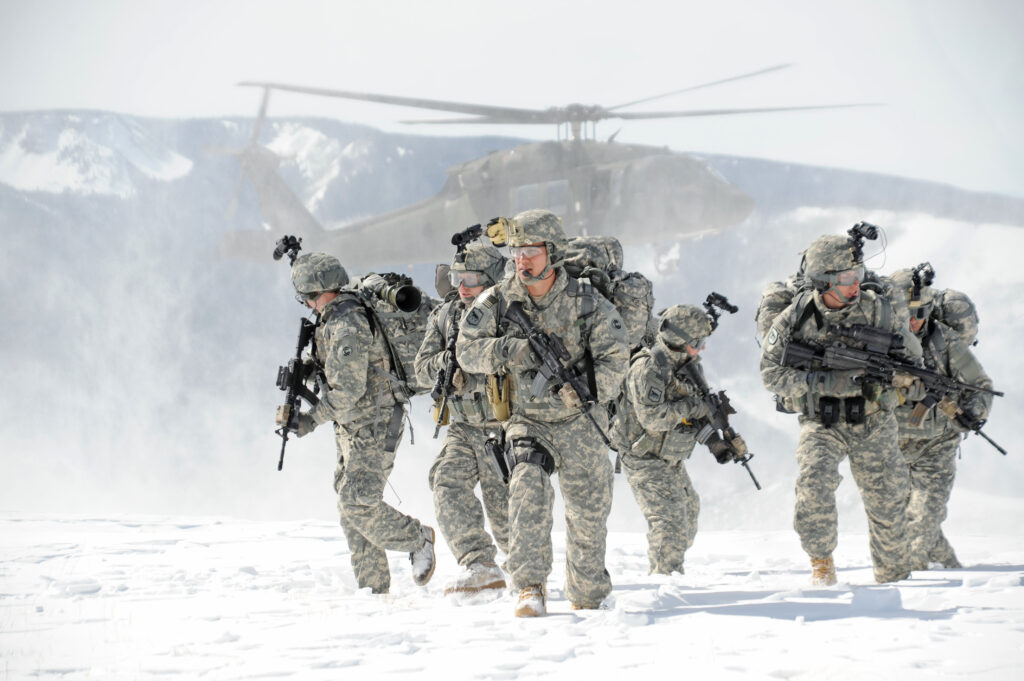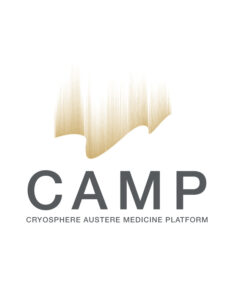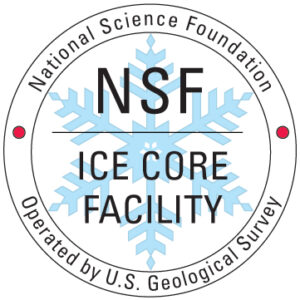Cryosphere Austere Medicine Platform
The Cryosphere Austere Medicine Platform at the University of Colorado was conceived to address knowledge and human performance gaps to inform DoD doctrine and military medicine in a controlled cold weather environment. Our research team has a deep background in military health, polar medicine, thermophysiology, and remote and austere care.
In collaboration with the National Science Foundation’s Ice Core Facility (located in metro-Denver) our aspiration is to engage in unique research to serve as a valuable and accessible laboratory for further studies of human performance in the extreme cold. CAMP has a track record of multiple U.S. Department of Defense funded studies and deliberately seeks to fill clinical and scientific gaps for the U.S. military.
The United States is one of eight nations with sovereign territory in the Arctic region. As climate change has affected accessibility to the polar north through increased commerce and resource extraction, the Artic has seen a commensurate rise in geopolitical interest. In response to these changes, the Department of Defense has articulated an Arctic Strategy that includes a greater presence in this region, with regular deployments and exercises. Understanding the impact of extreme cold conditions on the performance of medical operations and combat lifesaving techniques will be critical for successful operations in this domain.
Simply existing in these conditions is a challenge, let alone executing training or combat operations in the savage Arctic environment. Low temperatures often aggravate existing trauma, increasing mortality rates in the absence of rapid and appropriate treatment. Even mild trauma in these extreme conditions is life-threatening. Medical personnel providing care must maintain maximum cognitive and manual dexterity while on-scene and during transport.
Field resuscitations and life-saving interventions require different approaches in such an environment. Appropriate algorithms and procures at 20°C [68°F] may be inadequate or even harmful at temperatures 50 or even 70 degrees colder. A better understanding of provider capabilities in the extreme cold environment is needed to address these defecits, develop mitigation strategies, modify life-saving interventions (LSI), and enhance war fighter combat readiness. LSI are time sensitive; proper and efficient performance saves lives in the battlespace.
The Cryosphere Austere Medicine Program seeks to identify and develop medical techniques, skills, and knowledge for early intervention in life-threatening combat injuries unique to the extreme cold environment.
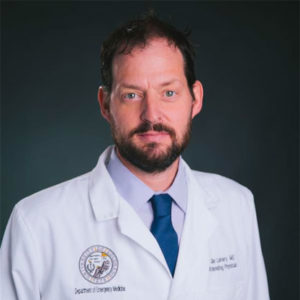 | Jay Lemery MD: CU Wilderness & Environmental Medicine; Director, CU Polar Medicine |
 | Vik Bebarta MD (Col, USAR): Professor and Director, CU Anschutz Campus Center for COMBAT Research |
 | John Carpenter PhD: Emeritus Professor, CU Pharmaceutical Biotechnology |
| Maj Tyler Davis MD (USAF): 59th Med Wing/Institute for Surgical Research, JBSA | |
 | Todd Getz PhD: CU COMBAT, Technology & Innovation |
 | Gordon Giesbrecht PhD: Professor of Thermophysiology, University of Manitoba |
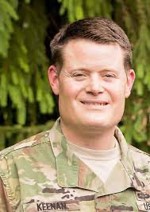 | Sean Keenan MD, (COL(ret.), US Army): Assistant Director, CU COMBAT; JTS; EMS Medical Director, UCHealth |
 | Todd Miner EdD: Senior Instructor, Wilderness & Environmental Medicine (retired) |
 | Anne Ritter PhD: Associate Director, CU COMBAT |
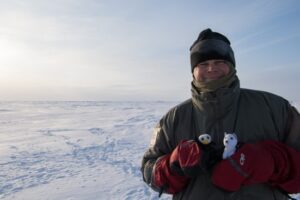 | MAJ Titus Rund DO MPH: AKARNG; Medical Director SAR/MEDEVAC, Joint Base Elmendorf–Richardson |
 | Angela Wright MD: CO State EMS Med Director; EMS Medical Director, UCHealth |
 | Lt Col Joseph Maddry MD: Deputy Commander of the USAISR |
 | Elan Small MD: Assistant Professor of Emergency Medicine, RECARI Founder |
 | Martin Musi MD: ICAR/ISMM, Mountain Medicine. Search & Rescue |
Objective: Evaluate the impact of extreme cold on cognitive abilities and performance of life-saving interventions (LSI)
Status: Currently in data analysis.
Objective: Evaluate the impact of extreme cold on cognitive abilities and performance of life-saving interventions (LSI) while utilizing appropriate chemical exposure protective equipment
Status: Currently in data analysis.
Objective: Evaluate the impact of extreme cold on cognitive abilities and performance of life-saving interventions (LSI) while utilizing appropriate chemical exposure protective equipment
Status: Currently in data analysis.
We seek partners to advance this critical research mission, and future directions include further work in:
- Cold-weather medical field protocols
- Human performance
- Acute and prolonged exposures
- Non-invasive monitoring and detection of Freezing Cold Injury (FCI)/Non-freezing Cold Injury (NFCI) and physiologic parameters (i.e. core body temp)
- Warfighter survivability by improved treatment & CASEVAC TTPs (i.e. casualty evacuation that is timely and disrupts driver’s combat injury risk and mortality as seen in current combat)
- Materiel performance
- Medical devices
- Rewarming capacity
- Pharmaceutical stability
- CBRNE Antidotes
- CoTCCC Medications
- TCCC medications used by NATO that are different than COTCCC meds
- Pre-hospital meds used by USAP and other Cold Regions Research
